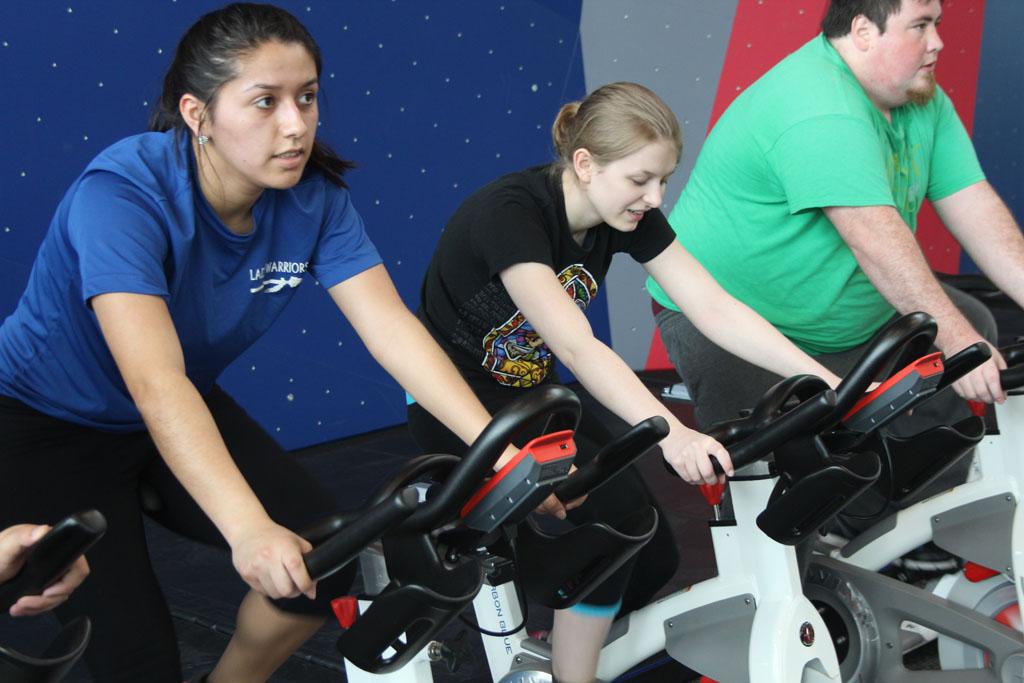In the pursuit of fitness goals, whether it’s running that extra mile, lifting heavier weights, or perfecting your yoga pose, the thrill of progress can often overshadow the body’s subtle signals of fatigue. While dedication is commendable, pushing too hard without adequate rest can lead to overtraining injuries, a setback that no one anticipates but many encounter. Understanding the fine line between challenging yourself and overexertion is crucial for maintaining a healthy and sustainable fitness journey. In this article, we’ll explore the best ways to prevent overtraining injuries, offering practical advice and empathetic guidance to help you listen to your body, optimize your training routine, and ensure that your path to fitness is not only rewarding but also safe. Whether you’re a seasoned athlete or just starting out, these strategies will empower you to train smarter, allowing your body the time it needs to recover and grow stronger.
Understanding Your Bodys Limits and Listening to Its Signals
Recognizing the limits of your body is essential to maintaining a healthy balance between pushing for progress and avoiding injury. It’s vital to listen to your body’s signals and respond appropriately. Ignoring these signals can lead to overtraining, which is detrimental to both physical and mental health. Here are some key indicators that you might be overstepping your limits:
- Persistent fatigue: Feeling excessively tired, even after a good night’s sleep, can be a sign of overtraining.
- Decreased performance: Noticing a drop in your usual performance levels despite consistent effort.
- Mood changes: Experiencing increased irritability, depression, or anxiety.
- Frequent injuries: Regularly dealing with muscle strains, joint pain, or other injuries.
To prevent overtraining injuries, it is crucial to incorporate rest and recovery into your routine. Consider the following strategies:
| Strategy | Description |
|---|---|
| Schedule Rest Days | Include at least one full rest day per week to allow your body to recover. |
| Cross-Train | Engage in different types of exercises to reduce stress on specific muscle groups. |
| Stay Hydrated | Proper hydration aids in muscle recovery and overall performance. |
By paying attention to these signals and adjusting your training regimen accordingly, you can enjoy a healthier, more sustainable fitness journey.

Crafting a Balanced Training Schedule for Optimal Recovery
Creating a training schedule that fosters both progress and recovery requires a mindful approach. Striking the right balance involves considering not only the intensity and frequency of workouts but also the critical importance of rest. Here are some key strategies to ensure your schedule supports optimal recovery:
- Variety is Key: Integrate a mix of cardio, strength, and flexibility exercises to engage different muscle groups and prevent repetitive strain.
- Listen to Your Body: Pay attention to signals like persistent soreness or fatigue. These are indicators that adjustments may be necessary.
- Plan Rest Days: Incorporate at least one full rest day each week to allow muscles to repair and strengthen.
Below is a sample weekly training schedule that balances activity and recovery:
| Day | Activity |
|---|---|
| Monday | Strength Training (Upper Body) |
| Tuesday | Cardio (Moderate Intensity) |
| Wednesday | Rest Day |
| Thursday | Strength Training (Lower Body) |
| Friday | Yoga or Pilates |
| Saturday | Cardio (High Intensity) |
| Sunday | Rest Day |

Incorporating Cross-Training to Enhance Overall Fitness
Cross-training is a powerful tool to diversify your fitness regimen, effectively preventing overuse injuries by allowing different muscle groups to rest and recover while still maintaining an active lifestyle. Embracing this approach can help enhance your overall fitness in a balanced manner. Here are some key benefits and activities to consider:
- Reduces Risk of Injury: By alternating between different types of exercises, you reduce the repetitive stress placed on the same muscles and joints.
- Improves Flexibility and Balance: Incorporating activities such as yoga or Pilates can improve your flexibility and balance, complementing more intense workouts.
- Boosts Mental Health: Trying new activities keeps your workout routine exciting and engaging, preventing mental burnout.
Consider incorporating a variety of activities into your weekly routine. Here’s a sample schedule to get you started:
| Day | Activity |
|---|---|
| Monday | Strength Training |
| Tuesday | Swimming |
| Wednesday | Yoga |
| Thursday | Cycling |
| Friday | HIIT (High-Intensity Interval Training) |
| Saturday | Rest or Light Walk |
| Sunday | Running |
By incorporating a mix of cardiovascular, strength, and flexibility exercises, you’ll not only safeguard against injuries but also improve your overall fitness and enjoyment. Listen to your body and adjust your routine as needed to stay motivated and healthy.

Nourishing Your Body with Proper Nutrition and Hydration
To effectively ward off overtraining injuries, it’s crucial to fuel your body with the right nutrients and stay adequately hydrated. Proper nutrition supports muscle recovery, strengthens your immune system, and provides the energy needed for workouts. Here are some key dietary considerations:
- Balanced Diet: Ensure your meals include a mix of carbohydrates, proteins, and healthy fats. Carbs fuel your muscles, proteins aid in recovery, and fats support hormone production.
- Antioxidant-Rich Foods: Incorporate fruits and vegetables like berries, spinach, and kale to combat oxidative stress and reduce inflammation.
- Electrolytes: Consuming foods rich in potassium and magnesium, such as bananas and nuts, helps maintain electrolyte balance, crucial for muscle function.
Hydration plays a pivotal role in preventing overtraining injuries by keeping your muscles and joints lubricated and aiding in nutrient transport. Here’s how you can stay on top of your hydration game:
| Hydration Tip | Benefit |
|---|---|
| Drink water consistently throughout the day | Maintains energy levels and prevents fatigue |
| Include hydrating foods like cucumbers and watermelon | Boosts water intake and provides essential nutrients |
| Monitor urine color | Ensures optimal hydration levels |
Remember, your body is like a finely tuned machine. Providing it with the right fuel and fluids not only enhances performance but also safeguards you from the setbacks of overtraining injuries.








































